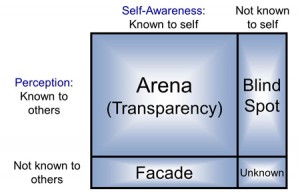What Mask Are You Wearing?
 A lot of famous characters wear masks: Batman, Catwoman, Superman, Supergirl, Zorro, and Darth Vadar, to name a few. Halloween is the popular time of year that many people put on a mask and pretend to be somebody else, but the reality is that most people wear several masks every other day of the year too. Those are the masks that intrigue me the most because they can dramatically impact your future success at home, in school, or at work. Let’s talk more about these everyday masks, more appropriately known as a Façade.
A lot of famous characters wear masks: Batman, Catwoman, Superman, Supergirl, Zorro, and Darth Vadar, to name a few. Halloween is the popular time of year that many people put on a mask and pretend to be somebody else, but the reality is that most people wear several masks every other day of the year too. Those are the masks that intrigue me the most because they can dramatically impact your future success at home, in school, or at work. Let’s talk more about these everyday masks, more appropriately known as a Façade.
Have you ever heard of Joseph Luft or Harry Ingham? There’s a slightly better chance that you’ve heard about their main contribution to society, especially if you are a psychologist or organizational consultant. Using parts of their first names, Joe and Harry developed the Johari Window, an easy-to-understand yet powerful model that can help you in many ways, by improving your self-awareness and identifying those façades that do more harm than good.
How the Johari Window helps
Perhaps the single most important thing you can do for yourself is this: value your potential, improve your self-awareness, and make changes to improve. The second most important thing you can do is for those you love, by valuing their potential, improving your perception of them, and supporting them when they are ready to change. Simply understanding how the Johari Window works can lead you to taking daily action that makes your world a better place!
How the Johari Window works
The first step is to picture the Johari Window as a map of your mind, which contains a lot of information about your behavior, attitude, thoughts, feelings, knowledge, skills, perceptions, presuppositions, etc. Those “mind attributes” (see footnote) will fall into one of four quadrants in the Johari Window. You really are only aware of two quadrants: the “Arena” and the “Façade”. Your friends and family are only aware of two quadrants: the “Arena” and the “Blind Spot”. There’s also a tricky quadrant in your mind that is unknown to everyone, called the “Unknown”.

The “Arena”: This is the stuff that both you and your friends will agree is ‘the real you’. The bigger this arena, the more you can enjoy being the real you, leveraging everything God gave you to embrace life and loved ones. Here’s a major point to remember: the goal of healthy individuals seeking healthy relationships is to make this window pane as big as possible.
The “Façade”: This is your “mask”, the stuff that you know well, but for whatever reason, don’t want others know about. Sometimes a façade is a good thing, for example, when what you’re hiding is a bad behavior or attitude that you’re actively working to improve or eliminate. Sometimes a façade is not a good thing, for example, when you intentionally pretend to be something that isn’t true. And sometimes a façade is an unintentional way to avoid dealing with behavior or attitudes that you should be addressing.
The “Blind Spot”: This is the stuff you really don’t know about yourself, but that others can see. When you receive constructive criticism, often times what you’re hearing is the observation of others about your blind spot. If you want to be a stronger, healthier person, then you’ll be thankful for input that helps you to shrink this blind spot.
The “Unknown”: Here’s the stuff that no one really knows. Sometimes this area contains emotions, behaviors, and attitudes that have never had to come to the surface. The younger you are, the bigger this blind spot. As you mature, build relationships, and experience life, this blind spot should begin to shrink down to a manageable size.
The Reinforcing Power…
By being more transparent about yourself, you have the ability to reduce your façade, and therefore become a healthier person with healthier relationships (e.g. spouses, family, friends, and coworkers). When you are not constantly wearing those pesky masks, the results can be quite wonderful: the perception other people have of you will improve, their interaction with you will improve, their feedback will be more accurate, you will trust them more, and your self-awareness will grow. Save your masks for Halloween. After all, that’s what masks are intended for!
Footnote – The Johari Window uses the following 56 adjectives to manage feedback and tool validity:
|
|
|
|
